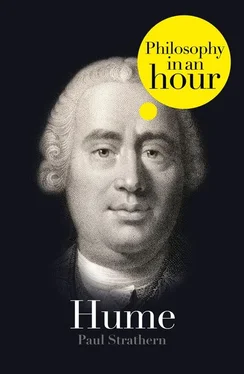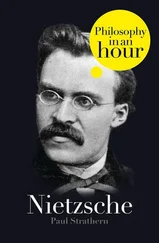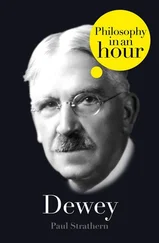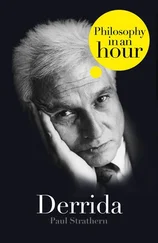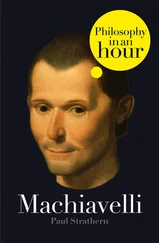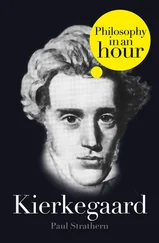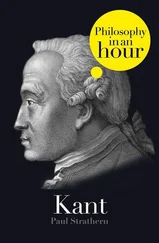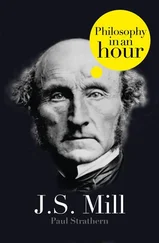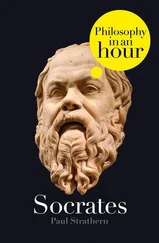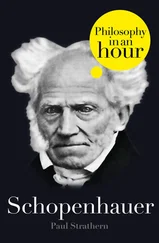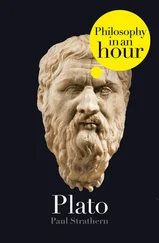Hume
PHILOSOPHY IN AN HOUR
Paul Strathern

Cover
Title Page Hume PHILOSOPHY IN AN HOUR Paul Strathern
Introduction
Hume’s Life and Works
Afterword
Further Information
Hume, His True Successors, and Modern Science
From Hume’s Writings
Chronology of Significant Philosophical Dates
Chronology of Hume’s Life
Recommended Reading
About the Author
Copyright
About the Publisher
Before Hume, philosophers were often accused of being atheists. Hume was the first one who admitted it.
Being judged an atheist was not an enviable accolade for philosophers, or anyone else. Society had a way of dealing with such unorthodox thinkers – from ancient Greece (poison) to the Middle Ages (the Inquisition). Philosophers thus went to great lengths to convince everybody (and themselves) that they were not atheists. Hume’s admission of theological bankruptcy was treated as a public scandal – but attempts to dissuade him were made with philosophical argument rather than the rack. This says as much for the tolerance of eighteenth-century British society as it does for Hume. Yet if he wished to remain consistent with his philosophy, Hume could have taken no other stance.
Philosophy was a long time coming to this. Several philosophers of the ancient world – such as some Stoics and a few cynics – were close to it. But Socrates was sentenced to death for not respecting the gods, and in ancient Rome it was often impossible not to believe in a god (especially when he was also the emperor). Thus faith became essential – for those who wished to continue thinking, just as much for those who wished to continue at all.
Early in the Christian era, philosophy was swallowed whole by theology. Plato and Aristotle became the holy writ, and philosophy consisted largely of elaborations on such accepted texts. These were followed by elaborations on the elaborations, and much heroic work rendering these elaborations acceptable to Christian dogma. A sideline developed with the misuse of logic in trying to prove the existence of God. A certain amount of all this activity was extremely ingenious, and even creative. But it was not original. The basic assumptions were always the same.
These assumptions were first seriously questioned in the seventeenth century by Descartes, who is now regarded as the founder of modern philosophy. Descartes swept aside the old assumptions and based his philosophy upon reason rather than faith. By a process of rational doubt, he showed that it is possible to deny everything – with one exception. I cannot doubt everything and yet at the same time doubt that I am thinking. ‘I think, therefore I am,’ was his celebrated conclusion. Thus Descartes reached the bedrock upon which he built the rational structure of his philosophy.
Just half a century later, the British philosopher John Locke went one step further with the introduction of empiricism. This claimed the ultimate ground of philosophy lay not in reason but in experience. In Locke’s view, all that we know is gained ultimately from experience. We have no innate ideas – just sensations, and the ideas we gain from reflecting on these sensations. It looked as if philosophy had reached its limit.
But it wasn’t long before someone took this one step further. The British empirical tradition took a step over the edge of sanity with the arrival of the Irishman Berkeley. If our knowledge of the world is based only on experience, how can we know that the world exists when we’re not perceiving it? The world was thus reduced to a figment, and philosophy to a laughing stock. But fortunately for the world, Berkeley was a bishop and a God-fearing man. Of course the world continued to exist, he declared, even when no one was perceiving it. How could this be? Because the world was always being perceived by God.
This philosophical sleight of hand saved Berkeley a lot of trouble (and not only with his archbishop and his congregation). The world now had a prop. This was to last just thirty years, until Hume entered the fray.
Hume is the only philosopher whose ideas remain plausible to us today. The ancient Greeks are readable as high literature, but their philosophy seems like brilliant fairy tales. The medievalism of Augustine and Aquinas is alien to the modern sensibility. Descartes and the rationalists make us realise that the human condition is not rational; the earlier empiricists seem self-evident, wrong-headed, or absurd. And the philosophers after Hume fall mostly into either of the last two categories.
What I have just tried to do, Hume succeeded in doing – he reduced philosophy to ruins. Hume went one step further even than Berkeley and thought the empirical situation through to its logical conclusion. He denied the existence of everything – except our actual perceptions themselves. In doing this, he placed us in a difficult position. This is solipsism: I alone exist, and the world is nothing more than part of my consciousness. Here we arrive at the endgame of philosophy, one from which it’s impossible to escape. Checkmate.
Then suddenly we realise that this doesn’t matter. Regardless of what the philosophers say, the world remains there – we go on as before. As did Hume, whose gargantuan frame and ready wit were not that of a bewildered, Beckett-like solipsist thinking himself to bits. What Hume expressed was the status of our knowledge about the world. Neither the world of religion nor the world of science are certain. We can choose to believe in religion if we wish, but we do so on no certain evidence. And we can choose to make scientific deductions in order to impose our will upon the world. But neither religion nor science exist in themselves. They are merely our reactions to experience, one of any number of possible reactions.
Hume was descended from an auld Scots family. His biography by E. C. Mossner includes a family tree tracing his ancestors back to the Home of Home, who died in 1424. The philosopher’s later ancestors include a number of unappealing but apparently distinguished Scottish names, such as a Belcher of Tofts, a Home of Blackadder, and a Norvell of Boghall.
David Hume was born 24 April 1711, in Edinburgh. His father died when he was three. A remarkably high proportion of the major philosophers lost their father at an early age, and this has produced the usual psychoanalytical theories. The gist of these is that the lack of a male parental figure creates a profound need for certainty. This in turn causes the bereft son to create an abstract system that takes the place of the ‘abstracted’ parent. Such psychoanalytical theories can be brilliant, entertaining, and possibly even informative (though about what, I’m not quite sure). In other words, their resemblance to the philosophers they describe is uncanny in many aspects – except that of intellectual rigour.
By the time David Hume arrived on the scene, his branch of the distinguished family tree had descended to the point where it was living on the chilly little estate of Ninewells. This was nine miles west of Berwick-upon-Tweed, near the village of Chirnside on the Scottish border. The original house where the philosopher grew up no longer exists, but the gullible philosophic tourist is shown the ‘Philosopher’s cave’, down the slope to the south-east of the present house. This dank, cramped, uninviting aperture is where Hume is said to have meditated as a lad, as well as during his later years (when its inner reaches might have proved something of a tight fit for his ample form). If our thought is affected by our surroundings, we would expect Hume’s meditations in this instance to have produced a somewhat neolithic philosophy with claustrophobic tendencies – and indeed this is much how the great German philosophers who came after him were to regard Hume’s work. This was inevitable, as the Germans were intent upon constructing vast philosophical systems – baroque palaces of metaphysics, no less – and had no wish to occupy the primitive philosophic cave that Hume had bequeathed them. Alas, philosophy should not be confused with architectural aspiration.
Читать дальше
